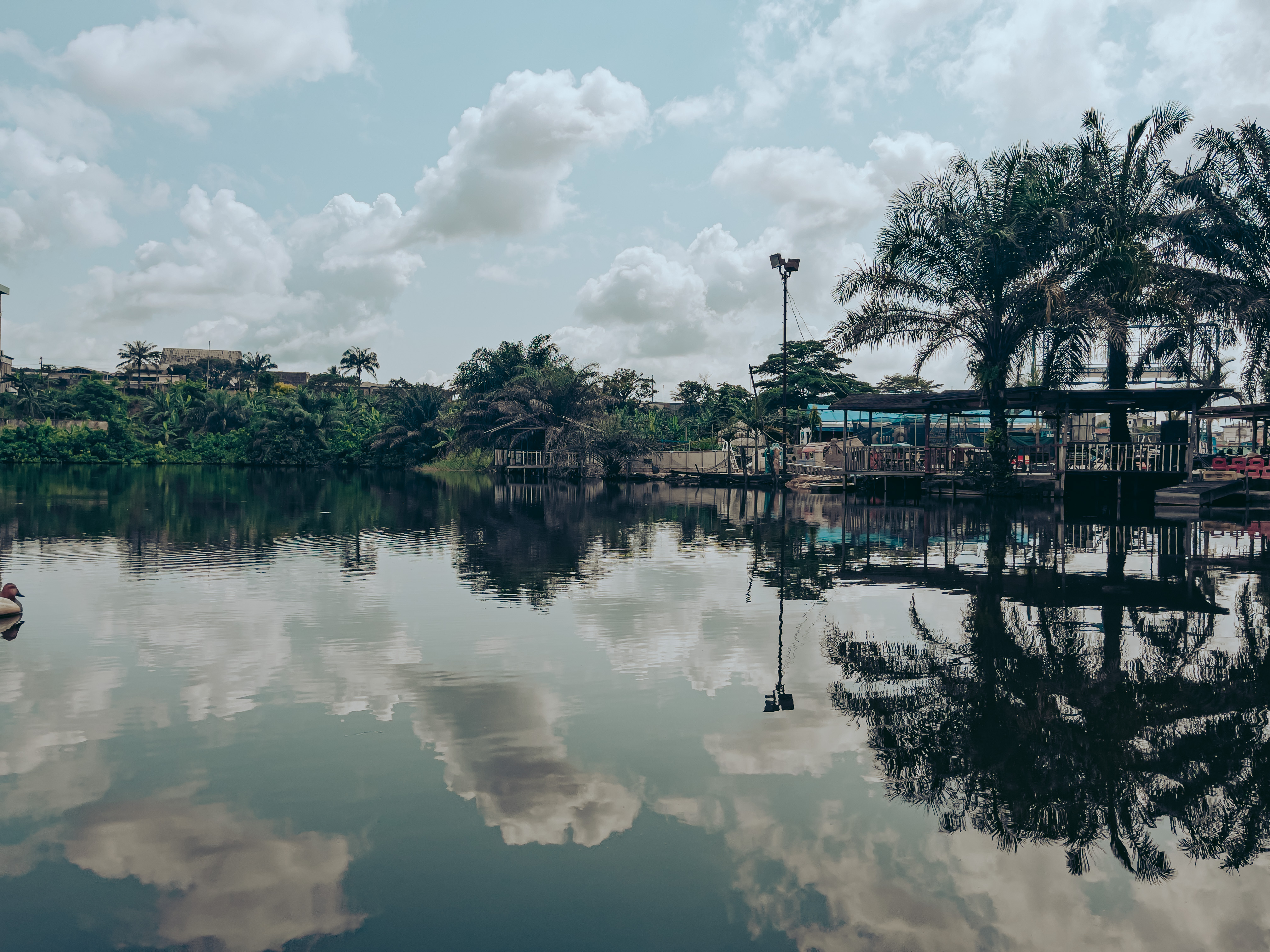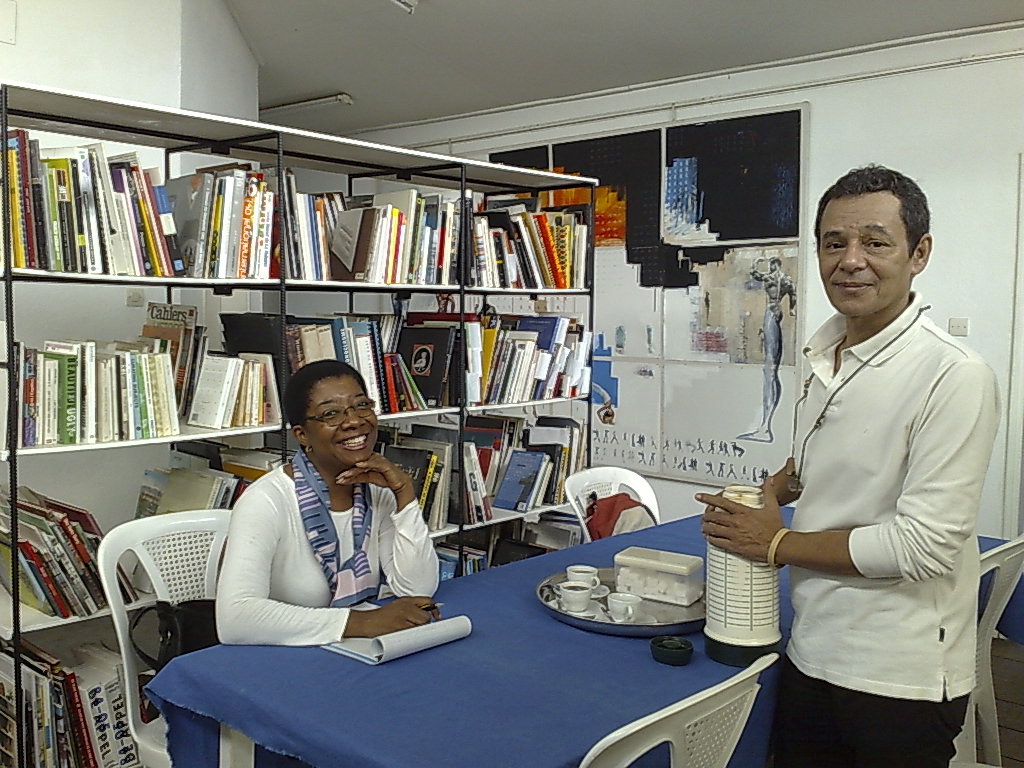|
Former Police Station Of Douala
The former police station situated in Douala is a building constructed at the beginning of the 20th century by the Germans to serve as the first police station under the German mandate. History The police station is the site where King Rudolf Douala Manga Bell and his assistant Adolf Ngosso Din were sentenced to death and hung. Both men has been sentenced following their staunch opposition to the June 1910 Decree issued by Governor Ebermaier and ordering the expropriation and resettlement of natives from Joss, Bonapriso, Akwa and Deïdo. The Germans decided to seize the land along the banks of Wouri River, thus violating the sovereignty clause which left the land to the natives as specified in the treaty signed on July 12, 1884 between the Duala Kings and German authorities. On the other hand, a one-kilometre buffer zone or “Freie Zone” was established between the Whites and the Blacks. Rehousing sites were then created for displaced people: Neu Bell, Neu Akwa, and Neu De� ... [...More Info...] [...Related Items...] OR: [Wikipedia] [Google] [Baidu] |
Douala
Douala is the largest city in Cameroon and its economic capital. It is also the capital of Cameroon's Littoral Region (Cameroon), Littoral Region. Home to Central Africa's largest port and its major international airport, Douala International Airport (DLA), it is the commercial and economic capital of Cameroon and the entire Economic Community of Central African States, CEMAC region comprising Gabon, Congo, Chad, Equatorial Guinea, Central African Republic and Cameroon. Consequently, it handles most of the country's major exports, such as Petroleum, oil, Cocoa bean, cocoa and coffee, timber, metals and fruits. , the city and its surrounding area had an estimated population of 5,768,400. The city sits on the estuary of Wouri River and its climate is tropical. History The first Europeans to visit the area were the Portuguese people, Portuguese in about 1472. At the time, the estuary of Wouri River was known as the Rio dos Camarões (Shrimp River). By 1650, it had become the site ... [...More Info...] [...Related Items...] OR: [Wikipedia] [Google] [Baidu] |
Cameroon
Cameroon (; french: Cameroun, ff, Kamerun), officially the Republic of Cameroon (french: République du Cameroun, links=no), is a country in west-central Africa. It is bordered by Nigeria to the west and north; Chad to the northeast; the Central African Republic to the east; and Equatorial Guinea, Gabon and the Republic of the Congo to the south. Its coastline lies on the Bight of Biafra, part of the Gulf of Guinea and the Atlantic Ocean. Due to its strategic position at the crossroads between West Africa and Central Africa, it has been categorized as being in both camps. Its nearly 27 million people speak 250 native languages. Early inhabitants of the territory included the Sao civilisation around Lake Chad, and the Baka hunter-gatherers in the southeastern rainforest. Portuguese explorers reached the coast in the 15th century and named the area ''Rio dos Camarões'' (''Shrimp River''), which became ''Cameroon'' in English. Fulani soldiers founded the Adamawa Emirate ... [...More Info...] [...Related Items...] OR: [Wikipedia] [Google] [Baidu] |
Wouri Banks
Wouri may refer to several places: * Wouri (department), a division of the Littoral Province in Cameroon * Wouri River, a river in Cameroon * Wouri estuary The Wouri estuary, or Cameroon estuary is a large tidal estuary in Cameroon where several rivers come together, emptying into the Bight of Biafra. Douala, the largest city in Cameroon, is at the mouth of the Wouri River where it enters the estu ..., a large tidal estuary in Cameroon * Wouri (star) or WASP-69, a star in the Aquarius constellation {{geodis ... [...More Info...] [...Related Items...] OR: [Wikipedia] [Google] [Baidu] |
Rudolf Douala Manga Bell
Rudolf Duala Manga Bell (1873 – 8 August 1914) was a Duala king and resistance leader in the German colony of Kamerun (Cameroon). After being educated in both Kamerun and Europe, he succeeded his father Manga Ndumbe Bell on 2 September 1908. Bell styled himself after European rulers and at first generally supported the colonial German authorities. He was quite wealthy and educated, although his father left him a substantial debt. In 1910 the German Reichstag developed a plan to relocate the Duala people living along the river, to be moved inland to allow for wholly European riverside settlements. Manga Bell became the leader of pan-Duala resistance to the policy. He and the other chiefs at first pressured the administration through letters, petitions, and legal arguments, but these were ignored or rebutted. Manga Bell turned to other European governments for aid, and he sent representatives to the leaders of other Cameroonian peoples to suggest the overthrow of the German ... [...More Info...] [...Related Items...] OR: [Wikipedia] [Google] [Baidu] |
Adolf Ngosso Din
Adolf (also spelt Adolph or Adolphe, Adolfo and when Latinised Adolphus) is a given name used in German-speaking countries, Scandinavia, the Netherlands and Flanders, France, Italy, Spain, Portugal, Latin America and to a lesser extent in various Central European and East European countries with non-Germanic languages, such as Lithuanian Adolfas and Latvian Ādolfs. Adolphus can also appear as a surname, as in John Adolphus, the English historian. The female forms Adolphine and Adolpha are far more rare than the male names. The name is a compound derived from the Old High German ''Athalwolf'' (or ''Hadulf''), a composition of ''athal'', or ''adal'', meaning "noble" (or '' had(u)''-, meaning "battle, combat"), and ''wolf''. The name is cognate to the Anglo-Saxon name '' Æthelwulf'' (also Eadulf or Eadwulf). The name can also be derived from the ancient Germanic elements "Wald" meaning "power", "brightness" and wolf (Waldwulf). Due to negative associations with Adolf Hitle ... [...More Info...] [...Related Items...] OR: [Wikipedia] [Google] [Baidu] |
Wouri River
The Wouri (also Vouri or Vuri) is a river in Cameroon. Cameroon has two major rivers, the Sanaga, the longest at about 525 km (325 miles) long and the Wouri, the largest. The Wouri forms at the confluence of the rivers Nkam and Makombé, northeast of the city of Yabassi. It then flows about southeast to the Wouri estuary at Douala, the chief port and industrial city in the southwestern part of Cameroon on the Gulf of Guinea. The river is navigable about upriver from Douala. Exploration The Portuguese navigator and explorer Fernão do Pó or Fernando Pó, is believed to be the first European to explore the estuary of the Wouri, around the year 1472. The explorers noted an abundance of the mud lobster ''Lepidophthalmus turneranus'' in the Wouri River and named it "''Rio dos Camarões"'', Portuguese for "River of Prawns", and the phrase from which the name Cameroon derived. The phrase "''Rio dos Camarões"'' later became Camarones when the Spanish arrived in the region. ... [...More Info...] [...Related Items...] OR: [Wikipedia] [Google] [Baidu] |
Doual'art
doual'art is a non profit cultural organisation and art centre founded in 1991 in Douala, Cameroon and focussed on new urban practices of African cities. History doual'art was registered as a non profit organization in 1992 and it was established by Marilyn Douala Bell and Didier Schaub. In 1995 they created ''Espace doual'art'', an exhibition space and gallery in the neighbourhood of Bonanjo in Douala. In 1996 they produced La Nouvelle Liberté by Joseph-Francis Sumégné, considered a landmark in Douala. In 2005 they organized the first Ars&Urbis event, an international symposium to foster discussion and theory about the contribution of art to urban transformation. The event led to the establishment of the SUD Salon Urbain de Douala, a triennial exhibition focused on public art. In December 2007 it launched the first edition of the SUD Salon Urbain de Douala. In December 2010 the second edition of SUD Salon Urbain de Douala took place. The salon produces the itinerant exhibi ... [...More Info...] [...Related Items...] OR: [Wikipedia] [Google] [Baidu] |
Kamerun
Kamerun was an African colony of the German Empire from 1884 to 1916 in the region of today's Republic of Cameroon. Kamerun also included northern parts of Gabon and the Congo with western parts of the Central African Republic, southwestern parts of Chad and far eastern parts of Nigeria. History Years preceding colonization (1868–1883) The first German trading post in the Duala area on the Kamerun River delta was established in 1868 by the Hamburg trading company . The firm's primary agent in Gabon, Johannes Thormählen, expanded activities to the Kamerun River delta. In 1874, together with the Woermann agent in Liberia, Wilhelm Jantzen, the two merchants founded their own company, Jantzen & Thormählen there. Both of these West Africa houses expanded into shipping with their own sailing ships and steamers and inaugurated scheduled passenger and freight service between Hamburg and Duala. These companies and others obtained extensive acreage from local chiefs and bega ... [...More Info...] [...Related Items...] OR: [Wikipedia] [Google] [Baidu] |



